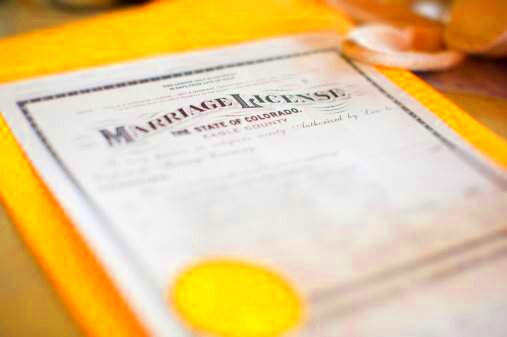Common Law Marriage in Kansas: What You Should Know
Common law marriage can be a perplexing term to many people but it is especially useful in Kansas as it means something legally. A common law marriage is different from a conventional one that requires a definitive ceremony and a marriage license; it is developed from the actions of the couple and their desire to be spouses. There are peculiar statutes that govern common-law marriage in Kansas even though it is acknowledged there. Therefore, this is an important aspect that couples have to understand about their relationships with regard to legal rights and obligations.
Requirements for Establishing Common Law Marriage
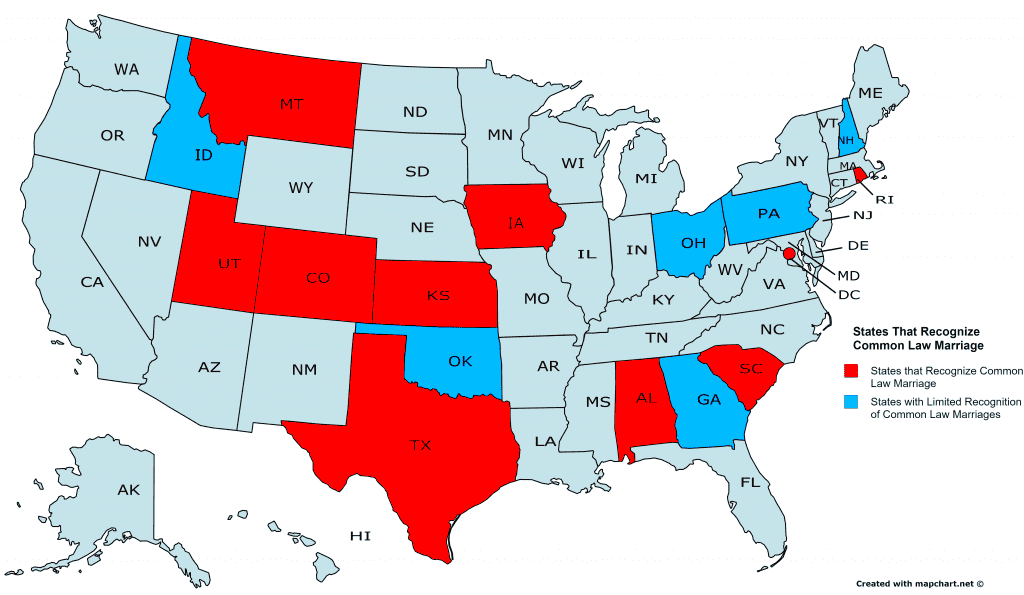
particular criteria that must be looked into if a common-law marriage is to be established in Kansas. The critical requirements are mentioned below:
- Mutual Consent: Both partners must agree to be married. This can be shown through actions or statements.
- Cohabitation: The couple must live together for a significant period. While there’s no set time, the longer you live together, the stronger the case for common law marriage.
- Presenting as a Married Couple: The couple should present themselves to the public as a married couple, which can include using the same last name or referring to each other as spouses.
- Intent to Marry: There must be a clear intention to be married. This can often be demonstrated through shared financial responsibilities or making joint decisions.
So, it’s good to know that talking to an attorney can help and clarify the doubts that one may have about their relationship.
Legal Recognition and Rights
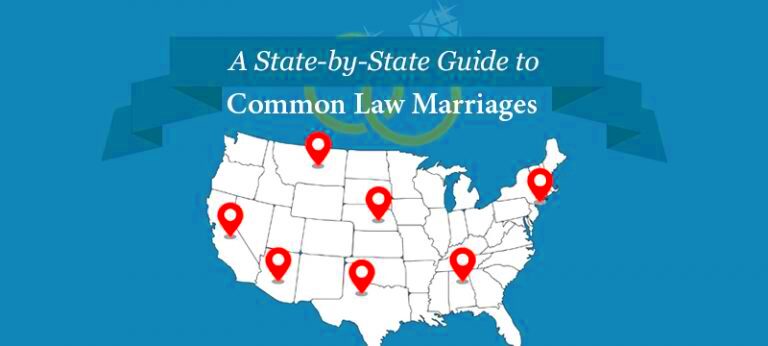
Just like traditional marriages, common law unions in Kansas are legally acknowledged. Therefore, partners possess certain entitlements and obligations pursuant to the law. Here are some of the major elements:
- Property Rights: Partners in a common law marriage have the right to own property jointly and to inherit from each other.
- Tax Benefits: Filing taxes as a married couple can often result in financial benefits.
- Spousal Privileges: Partners have the right to make medical decisions for one another and access health insurance benefits.
- Divorce Proceedings: Ending a common law marriage requires legal dissolution, similar to a traditional marriage. This can involve asset division and alimony.
Such comprehension is pivotal to any pair pondering or presently engaging in such a union in this state. Put simply, it would be prudent for the two parties to prove their togetherness by collecting accounts held together, titles of homeownership or elsewise transferring them into coownerships and other legal formalities.
How to Prove Common Law Marriage
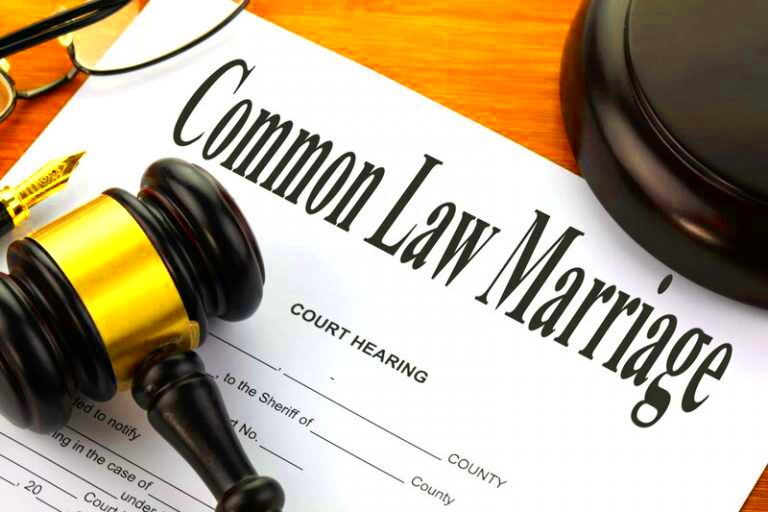
Establishing common law marriage can be challenging especially when considering legal documentation and proof. However, if you satisfy the conditions laid down by the Kansas law, there are many ways through which you can establish your common law marriage. It is vital to gather and present evidence that substantiates the authenticity of your relationship. The following steps can help you achieve this:
- Joint Documents: Gather any joint documents that reflect your shared life, such as joint bank accounts, leases, or mortgage agreements.
- Affidavits from Friends and Family: Statements from people who know you as a couple can help support your claim. These can be written affidavits or verbal testimonies.
- Shared Responsibilities: Evidence of shared responsibilities, like paying bills together or co-parenting children, can strengthen your case.
- Social Recognition: Documentation of how you present yourselves as a couple in social settings—like using the same last name or filing taxes jointly—can be significant.
- Correspondence: Emails or messages referring to each other as spouses can also help validate your relationship.
In the long run, it would be easier for you to prove your common law marriage if you have clear and steady evidence. Therefore, maintain good records!
Differences Between Common Law and Traditional Marriage
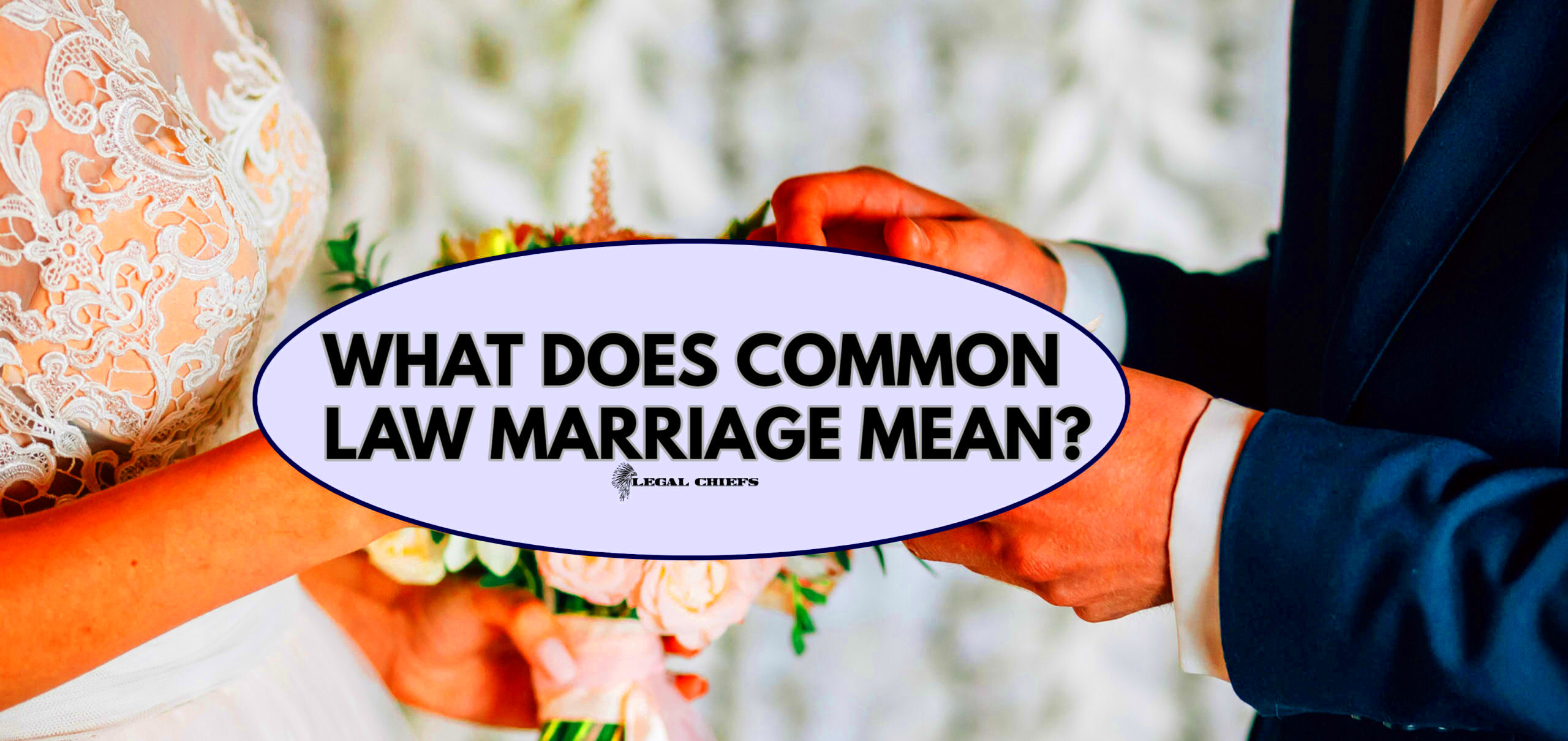
In Kansas, traditional unions differ from each other and have legal recognition in spite of their numerous similarities. It is, therefore, important to understand these differences before making any informed decision about your relationship. Below is a quick comparison:
| Aspect | Common Law Marriage | Traditional Marriage |
|---|---|---|
| Formation | Established by mutual consent and cohabitation without a formal ceremony. | Requires a marriage license and a formal ceremony. |
| Legal Proof | Needs evidence of cohabitation and intent. | Proof is provided through the marriage certificate. |
| Recognition | Recognized legally but harder to prove. | Widely recognized and easier to establish legally. |
| Ending the Union | Requires legal dissolution, similar to divorce. | Ends through divorce proceedings. |
Although both types of unions have their advantages, it is crucial to understand how each operates with respect to your obligations and entitlements.
Ending a Common Law Marriage
Common law marriage cannot be ending just by going your own way. Common law marriages must also undergo legal dissolution just like the conventional marriages, which is known as divorce. Here’s what you should keep in mind about the process:
- Legal Process: To end a common law marriage, you must file for divorce in court. This involves legal paperwork and potentially a court appearance.
- Division of Assets: Just like traditional marriages, assets and debts will need to be divided. It’s advisable to have a clear understanding of your financial situation and shared property.
- Child Custody: If you have children, custody arrangements will need to be made, including child support and visitation rights.
- Seek Legal Advice: Given the complexities involved, consulting with a lawyer who specializes in family law can provide guidance tailored to your specific situation.
While ending a common law marriage can be both an emotional and legal challenge, understanding the procedure can make it easier to deal with. Protecting your rights and interests is guaranteed by taking the correct measures.
Common Misconceptions About Common Law Marriage
Various misconceptions often cloud the definition of common-law marriage, leading to confusion. Many people do not really understand what this means, affecting their perception of rights and obligations. To clarify some common myths surrounding common law marriage in Kansas, let’s look at the following:
- Myth 1: Living Together Automatically Creates a Common Law Marriage. Simply living together does not establish a common law marriage. Both partners must have the intent to be married and present themselves as a married couple.
- Myth 2: There’s a Required Length of Cohabitation. While couples need to live together, there’s no specific time frame. It’s about the quality of the relationship and mutual consent.
- Myth 3: Common Law Marriages Are Not Recognized by Law. In Kansas, common law marriages are legally recognized, but proving one can be complex without proper documentation.
- Myth 4: You Can’t Get a Divorce from a Common Law Marriage. Ending a common law marriage requires a legal divorce process, just like a traditional marriage.
- Myth 5: Common Law Marriage Is Only About Shared Property. It also involves emotional commitment, shared responsibilities, and public recognition of the relationship.
Grasping the above follies can facilitate easier and less ambiguous relationship operations for partners while at the same time ensure that they know where they stand legally.
FAQs About Common Law Marriage in Kansas
When you contemplate entering into or are already in a common-law marriage, a variety of issues arise. Here are some questions that are regularly asked to help provide clarification on important points:
- Q: How do I know if I’m in a common law marriage?
- A: If you have mutual consent, live together, and present yourselves as a married couple, you may have a common law marriage.
- Q: Can I get a marriage certificate for my common law marriage?
- A: While you won’t have a marriage certificate like traditional marriages, you can seek a court declaration if needed.
- Q: What if one partner wants to end the common law marriage?
- A: The process is similar to a traditional divorce, involving legal proceedings to divide assets and responsibilities.
- Q: Do I need a lawyer for a common law marriage?
- A: Consulting a lawyer can be beneficial, especially if you’re unsure about your rights or the dissolution process.
- Q: What are the benefits of a common law marriage?
- A: Common law marriage provides many legal rights similar to those in traditional marriage, such as property rights and tax benefits.
In these frequently asked questions, you may find various queries that may help alleviate common questions.
Conclusion on Common Law Marriage in Kansas
In summary, Kansas law permits for it to be done through common law to enforce binding unions of individuals which, like their normal counterparts, comes along with various entitlements and duties. In order not to fall into the trap of entering this type of union without knowing what it really is about it is important for them to have proper knowledge concerning requirements, rights and dangers of these marriages. One needs to communicate better; everyone must agree so that he/she can have it all if this thing is going to work out and keep records properly. If you find yourself in such a relationship or even thinking about entering into one, paying attention will allow you do make right choices based on your own mind. It is important to note here that in case further elucidation is necessary, a legal practitioner would straighten things out and take care of any right violations.
